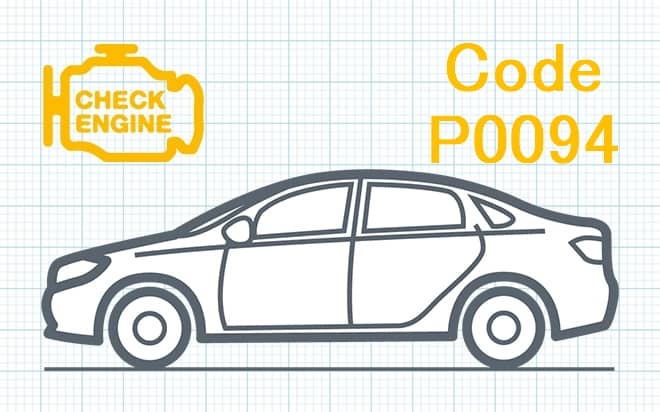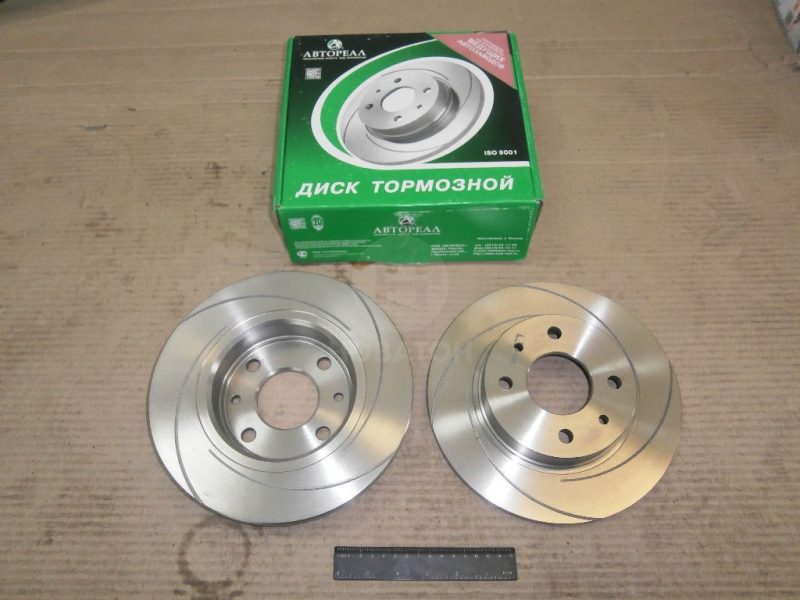
P0094 Small Leak Detected in Fuel System
Content
P0094 Small Leak Detected in Fuel System
OBD-II DTC Datasheet
Fuel system leak detected - small leak
What does this mean?
This Diagnostic Trouble Code (DTC) is a generic transmission code, which means it applies to all vehicles since 1996 (Ford, GMC, Chevrolet, VW, Dodge, etc.). Although general, specific repair steps may differ depending on the brand / model.
When I come across a stored code P0094, it usually means that the powertrain control module (PCM) has detected a significant drop in fuel pressure. Fuel pressure specifications vary from one manufacturer to another, and the PCM is programmed to monitor fuel pressure in accordance with those specifications. This code is mainly used in diesel vehicles.
Diesel fuel systems are monitored (PCM) using one or more fuel pressure sensors. Low pressure fuel is pumped from the storage tank to the high pressure unit injector via a feed (or transfer) pump, which is usually either attached to a rail or inside the fuel tank. Once the fuel comes out of the injection pump, it can go up to 2,500 psi. Be careful when checking fuel pressure. These extreme fuel pressure conditions can be very dangerous. Although diesel is not as flammable as gasoline, it is highly flammable, especially under high pressure. In addition, diesel fuel at this pressure can penetrate the skin and enter the bloodstream. Under certain circumstances, this can be harmful or even fatal.
Fuel pressure sensors are located at strategic points in the fuel delivery system. Usually, at least one fuel pressure sensor is installed on each segment of the fuel system; a sensor for the low pressure side and another sensor for the high pressure side.
Fuel pressure sensors are usually three-wire. Some manufacturers use battery voltage, while others use a lower degree of voltage (usually five volts) as a reference for the PCM. The sensor is supplied with a reference voltage and a ground signal. The sensor provides a voltage input to the PCM. As the pressure in the fuel system increases, the resistance level of the fuel pressure sensor decreases, allowing the voltage signal, which is input to the PCM, to increase accordingly. When the fuel pressure decreases, the resistance levels in the fuel pressure sensor increase, causing the voltage input to the PCM to decrease. If the fuel pressure sensor / sensors are operating normally, this cycle takes effect with each ignition cycle.
If the PCM detects a fuel system pressure that does not match the programmed specifications for a set period of time and under certain circumstances, a P0094 code will be stored and a malfunction indicator lamp may illuminate.
Severity and symptoms
Given the potential for the vehicle to catch fire, as well as the clear potential for reduced fuel efficiency that may be associated with a stored P0094 code, this issue should be addressed with great urgency.
Symptoms of a P0094 code may include:
- Distinct diesel smell
- Reduced fuel efficiency
- Reduced engine power
- Other fuel system codes can be stored
reasons
Possible causes of this engine code include:
- Clogged fuel filter
- Defective fuel pressure sensor
- Defective fuel pressure regulator
- Fuel system leaks, which may include: fuel tank, lines, fuel pump, feed pump, fuel injectors.
Diagnostic and repair procedures
A good starting point is always to check the Technical Service Bulletins (TSB) for your particular vehicle. Your problem may be a known issue with a known manufacturer-released fix and could save you time and money while troubleshooting.
I would have access to a suitable diagnostic scanner, diesel fuel gauge, digital volt / ohmmeter (DVOM) and vehicle service manual or All Data (DIY) subscription when trying to diagnose this type of code.
I usually start my diagnosis with a visual inspection of the fuel lines and components. If any leaks are found, repair them and recheck the system. Inspect the system wiring and connectors at this time.
Connect the scanner to the vehicle diagnostic socket and get all stored codes and freeze frame data. Make a note of this information in case it turns out to be an intermittent code that is much more difficult to diagnose. If there are other fuel system related codes present, you may want to diagnose them first before attempting to diagnose P0094. Clear the codes and test drive the vehicle.
If P0094 resets immediately, locate the scanner data stream and observe the fuel pressure reading. By narrowing your data stream to include only relevant data, you will get a faster response. Compare the actual reflected fuel pressure reading to the manufacturer's specifications.
If fuel pressure is out of specification, use a pressure gauge to check system pressure in the appropriate quadrant. If the actual fuel pressure reading does not match the manufacturer's recommended specifications, suspect a mechanical failure. Continue by disconnecting the fuel pressure sensor connector and checking the resistance of the sensor itself. If the resistance of the sensor does not match the manufacturer's specifications, replace it and retest the system.
If the sensor works, disconnect all associated controllers and begin testing system wiring for resistance and continuity. Repair or replace open or closed circuits as necessary.
If all system sensors and circuitry appear normal, suspect a faulty PCM or a PCM programming error.
Additional diagnostic tips:
- Use caution when checking high pressure fuel systems. These types of systems should only be serviced by qualified personnel.
- Although this code is described as a “small leak,” low fuel pressure is often the cause.
See Also: P0093 Fuel System Leak Detected - Large Leak
Related DTC discussions
- There are currently no related topics in our forums. Post a new topic on the forum now.
Need more help with your p0094 code?
If you still need help with DTC P0094, post a question in the comments below this article.
NOTE. This information is provided for informational purposes only. It is not intended to be used as a repair recommendation and we are not responsible for any action you take on any vehicle. All information on this site is protected by copyright.
